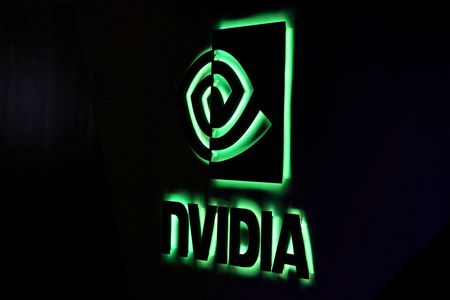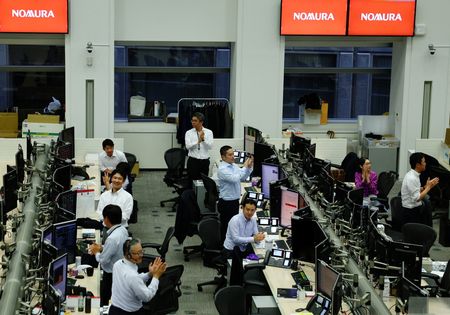(Reuters) -Chinese authorities have urged local companies to avoid using Nvidia’s H20 artificial intelligence chips, particularly for government-related purposes, Bloomberg News reported on Tuesday, citing people familiar with the matter.
Authorities have sent notices to a range of firms discouraging the use of the less-advanced semiconductors, with the guidance taking a particularly strong stance against the use of Nvidia’s H20s for any government or national security-related work by state enterprises or private companies, the report said.
Reuters could not immediately confirm the report.
Nvidia said in a statement on Tuesday that the H20 chip is “not a military product or for government infrastructure.”
“China has ample supply of domestic chips to meet its needs. It won’t and never has relied on American chips for government operations, just like the U.S. government would not rely on chips from China,” the statement said.
The move comes after China’s state media said the H20 chips pose security concerns. Nvidia has said that its products have no “backdoors” that would allow remote access or control.
It also follows comments from U.S. President Donald Trump on Monday, suggesting that he might allow Nvidia to sell a scaled-down version of its next-generation advanced GPU chip, Blackwell, in China, despite deep-seated fears in Washington that Beijing could harness U.S. AI capabilities to supercharge its military.
The most advanced chip Nvidia is currently allowed to sell to China is the H20, which is based off the company’s older Hopper architecture platform. The Trump administration green-lighted exports of H20 AI to China last month.
The Trump administration last week confirmed an unprecedented deal with Nvidia and AMD to give the U.S. government 15% of revenue from sales of some advanced chips in China.
China’s renewed guidance on avoiding chips also impacts AI accelerators from Advanced Micro Devices, the Bloomberg report said, adding that it was unclear whether any notices from Chinese authorities specifically mentioned AMD’s MI308 chip.
AMD did not respond to a request for comment outside regular business.
(Reporting by Ananya Palyekar and Surbhi Misra in Bengaluru; Editing by Tom Hogue, Kim Coghill, Rashmi Aich and Saad Sayeed)










